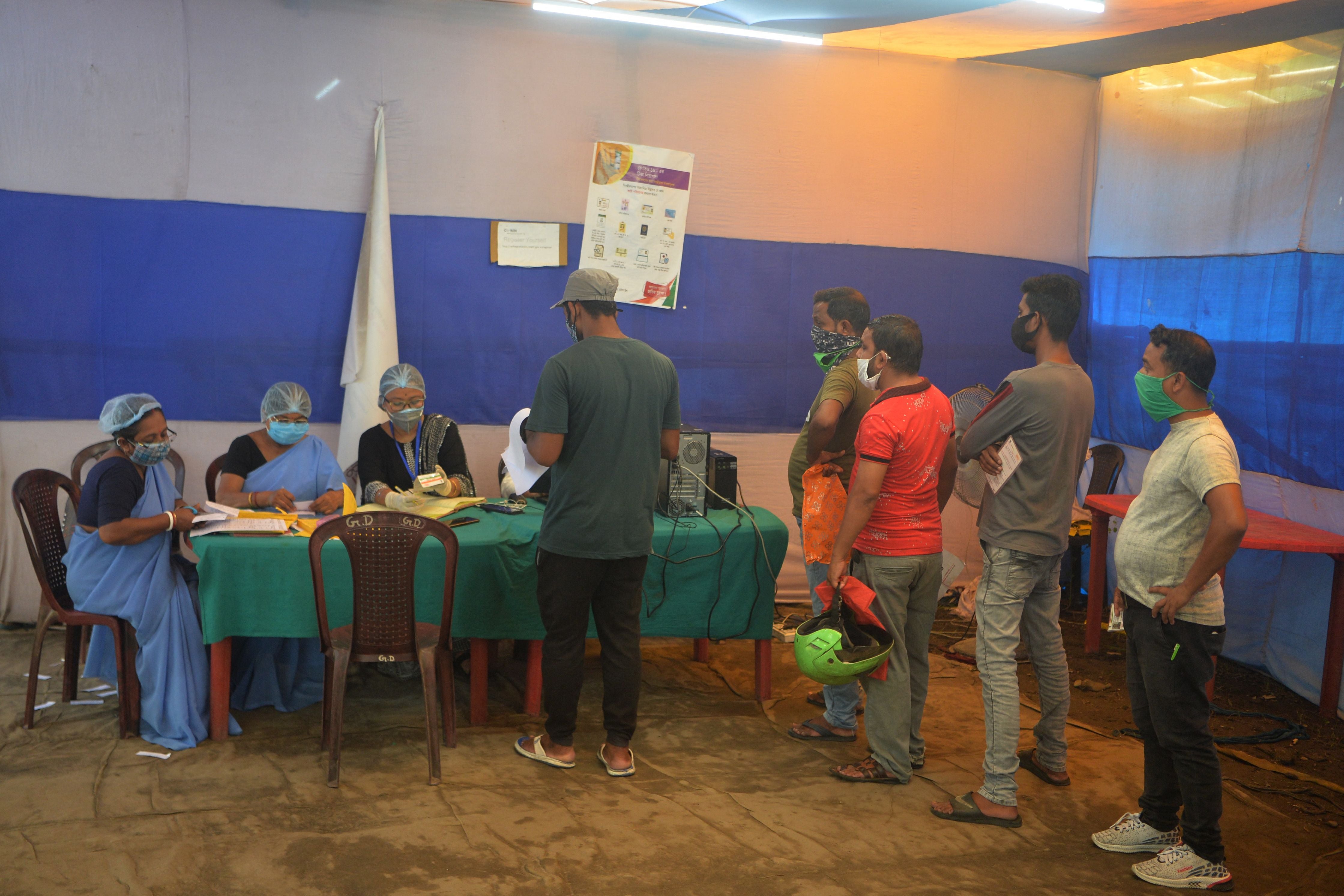‘Arbitrary and irrational’: India’s top court slams vaccine policy and questions need for app registration
Supreme Court says digital registration process only ensures the most privileged get vaccinated first

Your support helps us to tell the story
From reproductive rights to climate change to Big Tech, The Independent is on the ground when the story is developing. Whether it's investigating the financials of Elon Musk's pro-Trump PAC or producing our latest documentary, 'The A Word', which shines a light on the American women fighting for reproductive rights, we know how important it is to parse out the facts from the messaging.
At such a critical moment in US history, we need reporters on the ground. Your donation allows us to keep sending journalists to speak to both sides of the story.
The Independent is trusted by Americans across the entire political spectrum. And unlike many other quality news outlets, we choose not to lock Americans out of our reporting and analysis with paywalls. We believe quality journalism should be available to everyone, paid for by those who can afford it.
Your support makes all the difference.The Supreme Court of India has strongly criticised the central government’s vaccine policy, saying the present system of allowing only digital registration will mean the most privileged in society get inoculated first.
The court said the policy of conducting free vaccination for groups in the first two phases, only to replace it with a system of paid vaccination for those between 18-44 years, was “arbitrary and irrational.”
Under the new policy, 50 per cent of the population in any state or union territory in the 18-44 age group is expected to pay for the vaccine, the court noted.
In the first two phases of the vaccination drive — for healthcare and frontline workers, and for those above the age of 45 — the central government procured and allocated the vaccines to the states.
Since the start of the vaccine drive, the Indian government has said that it is mandatory to register on the online government portal CoWIN to receive the Covid-19 vaccine. To register, people need a valid government ID and mobile phone number.
According to Livelaw, the bench said: “The present system of allowing only digital registration and booking of appointment on CoWIN, coupled with the current scarcity of vaccines, will ultimately ensure that initially all vaccines, whether free or paid, are first availed by the economically privileged sections of the society.”
Shortages have led to a highly uneven geographic distribution in the vaccine rollout, the court said, even among those who can afford to pay. These people “may opt for a free vaccine simply because of issues of availability, even if it would entail travelling to far-flung rural areas”.
The order was issued on 31 May, but made public only on Wednesday.
The court also flagged a “digital divide” between rural and urban India. It said that a vaccination policy that relies on a digital portal “would be unable to meet its target of universal immunisation owing to such a digital divide.” It said the marginalised sections of society would bear the brunt of this accessibility barrier.
The Supreme Court noted that it may not be feasible to require the majority of the population to rely on friends or NGOs for digital registrations over CoWIN, when even the digitally literate are finding it hard to procure vaccination slots.
India has so far fully vaccinated just 3.2 per cent of its population and 12.4 per cent has received at least the first dose, according to Reuters’ vaccination tracker. The Narendra Modi government has come in for sharp criticism due to the shortage of doses with some states suspending vaccinations for the 18-44 age group.
The government has said it plans to vaccinate the entire adult population by the end of the year, something which would require a massive ramping up of daily vaccinations from the current levels. The court has directed the central government to place on record a road map of projected availability of vaccines until 31 December 2021.
The Delhi High Court also spoke out over the vaccinations programme this week, questioning whether manufacturers were really doing all they could to meet the country’s hour of need. Judges said that anyone found to have been stockpiling or under-utilising untapped potential to make more vaccines should be charged with “manslaughter”.
The court said the government should step in and engage in some urgent “hand-holding” of manufacturers, something that is not currently happening, the news agency PTI reported.
Join our commenting forum
Join thought-provoking conversations, follow other Independent readers and see their replies
Comments